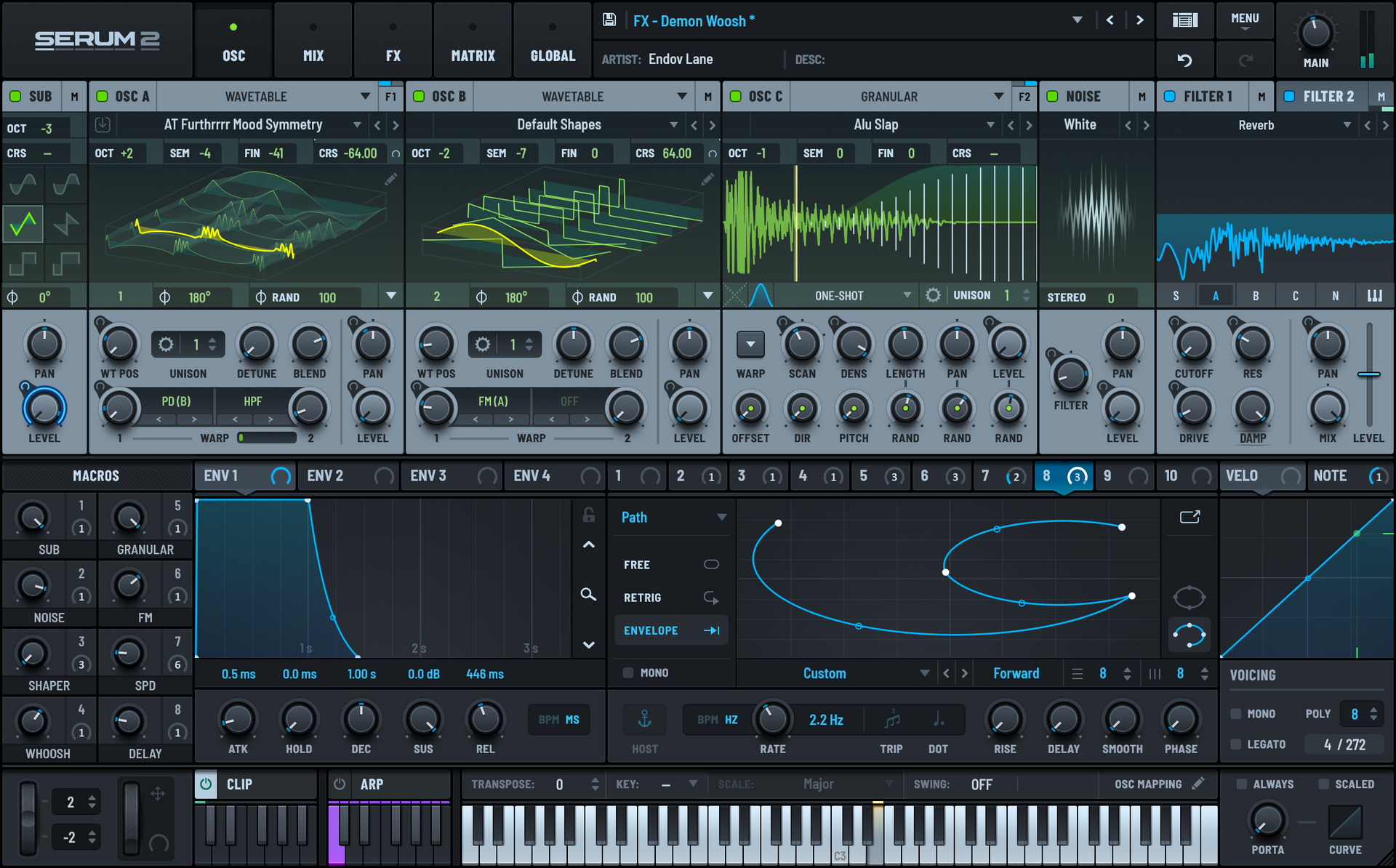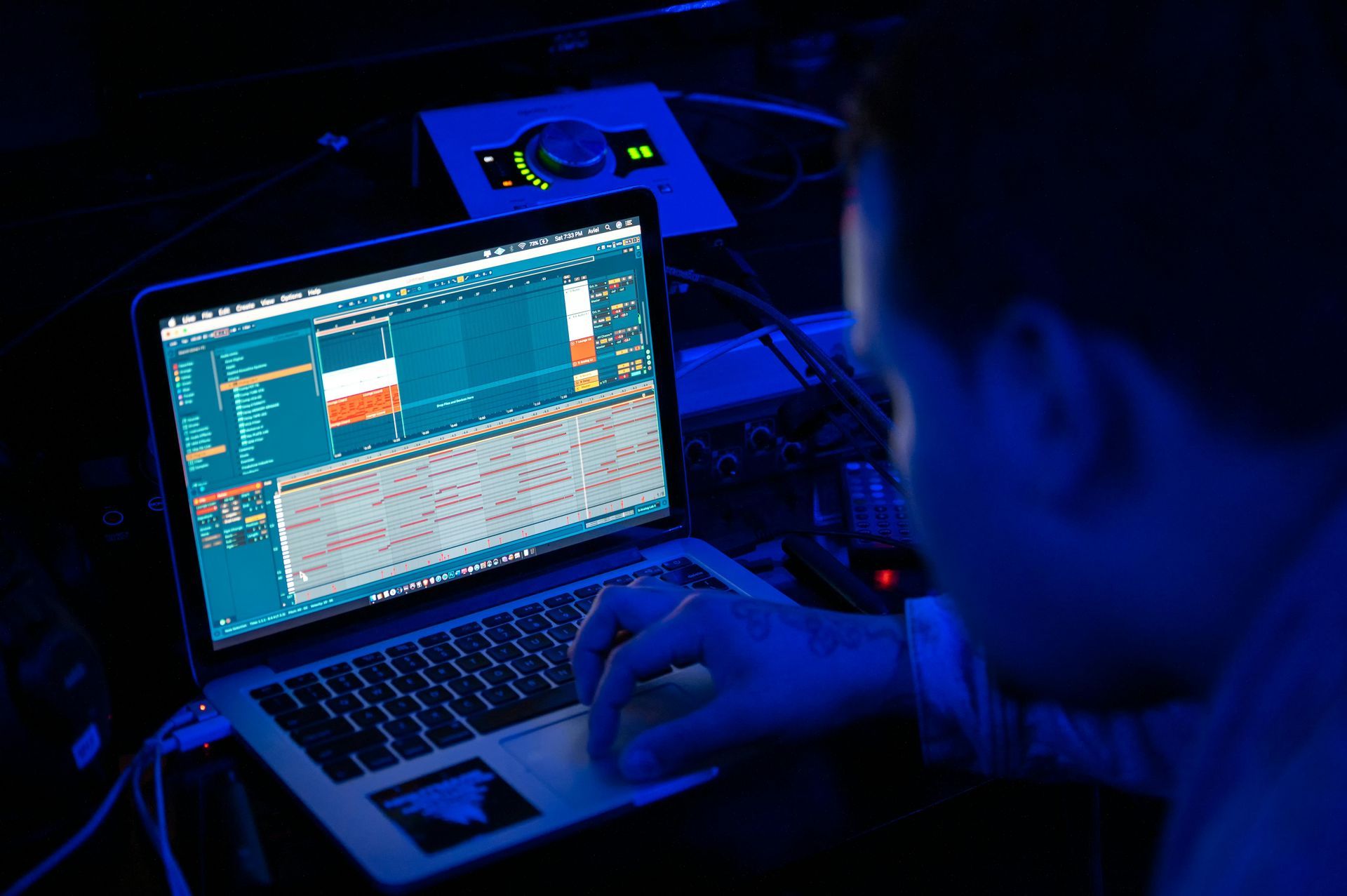Live Electronic Music - Pro Tips To Elevate Your Stage Game
Discover essential live electronic music performance tips to elevate your stage presence and sound quality. Learn from ICON Collective experts.

Introduction
Mastering live electronic music performance is an art that requires a blend of technical skills, creativity, and stage presence. As an electronic musician, stepping onto the stage can be both exhilarating and daunting. Whether you're a seasoned performer or a newcomer, understanding the intricacies of live performance can significantly enhance your stagecraft. ICON Collective, a leading music production school, specializes in equipping artists with the skills and mindset necessary to excel professionally. In this comprehensive guide, we will explore essential live electronic music performance tips to help you shine on stage.
Understanding the Basics of Live Electronic Music Performance
Live electronic music performance differs vastly from studio production. It involves real-time manipulation of sounds, synchronization of various devices, and interaction with the audience. The dynamic nature of live performance demands not only technical proficiency but also the ability to adapt and improvise on the spot.
The Role of Technology in Live Performances
Essential Gear for Electronic Performances
The backbone of any electronic live performance is the gear. This includes synthesizers, drum machines, samplers, MIDI controllers, and audio interfaces. Each piece of equipment plays a pivotal role in shaping your sound and performance style. It's crucial to select gear that complements your music and offers reliability during live sets.
Integrating Software and Hardware
Seamless integration between software and hardware is essential for a smooth performance. Software like Ableton Live, Logic Pro, or FL Studio can be used in conjunction with hardware to trigger samples, control effects, and sequence tracks. Ensuring that your setup is cohesive and easy to navigate will prevent technical hiccups during your performance.
Setting Up Your Live Performance Rig
Choosing the Right Equipment
Selecting the right equipment for your live setup can be overwhelming given the plethora of options available. Focus on gear that not only sounds great but also integrates well with your existing setup. Modular synths, grooveboxes, and performance-oriented controllers can add versatility to your rig.
Configuring Your Setup for Seamless Performance
Proper configuration of your equipment is crucial for a glitch-free performance. This includes setting up MIDI mappings, creating templates, and organizing your sessions. Practicing with your configured setup will help you become familiar with its nuances, ensuring you can troubleshoot quickly if needed.
Creating an Engaging Setlist
Balancing Energy and Flow
Crafting a setlist that maintains audience engagement is an art. Balance high-energy tracks with more subdued moments to create a dynamic flow. Consider the arc of your performance, building up to climactic points and allowing space for audience interaction.
Incorporating Improvisation
While a well-structured setlist is important, leaving room for improvisation can make your performance more spontaneous and exciting. Use loops, live effects, and on-the-fly adjustments to add a unique touch to each performance, ensuring no two shows are the same.
Sound Design for Live Performances
Crafting Unique Sounds
Sound design is a key element of live electronic music. Creating unique sounds that distinguish your performance from recorded tracks can captivate the audience. Experiment with synthesizers, samplers, and effects to develop a sonic palette that is distinctly yours.
Utilizing Effects and Processing
Live effects and processing can transform your sound in real time. Delays, reverbs, filters, and modulation effects can be used to add depth and texture to your performance. Mastering the use of these effects will enable you to manipulate your sound creatively on stage.
Live Performance Techniques
Live Looping and Sampling
Live looping and sampling are powerful techniques that can enhance your performance. By layering loops and samples, you can create complex arrangements and build tracks organically during your set. Practice timing and layering to achieve a polished live looping setup.
Sequencing and Arrangement on the Fly
Sequencing and arranging tracks live requires quick thinking and familiarity with your equipment. Using step sequencers, clip launching, and pattern chaining allows you to modify arrangements in real time, keeping the performance dynamic and engaging.
Visuals and Stage Presence
Enhancing Your Performance with Visuals
Visual elements can significantly enhance your live show. Integrating visuals that sync with your music, such as projection mapping, LED screens, or VJ software, creates a multi-sensory experience for the audience. Ensure your visuals complement the mood and style of your music.
Developing Stage Presence and Audience Interaction
Stage presence is crucial for connecting with your audience. Confidence, energy, and interaction can elevate your performance. Engage with the crowd through eye contact, gestures, and verbal communication. The more you connect with your audience, the more memorable your performance will be.
Rehearsal Strategies
Effective Practice Techniques
Rehearsing your set is essential for a flawless performance. Break down your practice sessions into focused segments, such as transitions, cue points, and improvisation. Regular practice will build muscle memory and ensure you are prepared for any situation on stage.
Simulating Live Performance Conditions
Practicing in an environment that mimics live performance conditions can help you prepare for the real thing. Use the same setup, volume levels, and lighting conditions as you would on stage. This will help you identify and address any potential issues before your performance.
Managing Live Performance Anxiety
Mental Preparation and Mindset
Performance anxiety is common among musicians. Mental preparation techniques, such as visualization, breathing exercises, and positive affirmations, can help you manage nerves. Developing a confident mindset will allow you to perform at your best.
Techniques to Stay Calm and Focused
Staying calm and focused on stage is crucial for a successful performance. Practice mindfulness and grounding techniques to maintain composure. Remember that the audience is there to enjoy your music, and minor mistakes are often unnoticed by them.
Performance Day Essentials
Pre-Performance Checklist
Having a pre-performance checklist ensures that everything is in place for your show. This includes checking your gear, preparing backups, and confirming logistics. A thorough checklist will help you avoid last-minute stress and focus on delivering a great performance.
On-Stage Troubleshooting Tips
Technical issues can arise during live performances. Being prepared to troubleshoot on stage is essential. Familiarize yourself with common issues and their solutions, and always have a backup plan in place.
Post-Performance Review
Assessing Your Performance
After your performance, take time to review and assess how it went. Analyze what worked well and what could be improved. Recording your performance can provide valuable insights and help you refine your skills.
Gathering Feedback and Improving
Feedback from peers, mentors, and audience members can offer valuable perspectives. Use this feedback constructively to make adjustments and enhance your future performances. Continuous improvement is key to becoming a successful live performer.
ICON Collective's Role in Shaping Successful Performers
Skills and Mindset Training at ICON Collective
ICON Collective is renowned for its comprehensive training programs that blend technical skills with mindset development. The school's curriculum covers all aspects of music production and performance, ensuring that students are well-prepared for the demands of the music industry.
Success Stories from ICON Alumni
Many ICON Collective alumni have gone on to achieve significant success in the music industry. Their stories serve as inspiration and testament to the effectiveness of ICON's training programs. From chart-topping producers to acclaimed live performers, ICON graduates are making their mark globally.
Frequently Asked Questions
What are some essential gear items for live electronic music performance?
Essential gear items include synthesizers, drum machines, samplers, MIDI controllers, and audio interfaces. Each plays a crucial role in shaping your sound and performance.
How can I integrate software and hardware for a seamless live performance?
Seamless integration can be achieved by using software like Ableton Live in conjunction with hardware. Ensure that your setup is cohesive and easy to navigate.
What techniques can I use to manage live performance anxiety?
Mental preparation techniques such as visualization, breathing exercises, and positive affirmations can help manage performance anxiety. Developing a confident mindset is also crucial.
How can I enhance my live performance with visuals?
Integrating visuals such as projection mapping, LED screens, or VJ software can enhance your live show. Ensure that your visuals complement the mood and style of your music.
What rehearsal strategies can help improve my live performance?
Effective rehearsal strategies include breaking down practice sessions into focused segments and simulating live performance conditions. Regular practice will build muscle memory and ensure preparedness.
How can I gather and use feedback to improve my live performances?
Feedback from peers, mentors, and audience members can offer valuable perspectives. Use this feedback constructively to make adjustments and enhance future performances.
Conclusion
Mastering live electronic music performance requires dedication, practice, and a deep understanding of both technology and artistry. By following these tips, you can elevate your stage presence and deliver unforgettable performances. ICON Collective offers the training and support needed to succeed in the competitive music industry, helping you turn your passion for music into a professional career. Whether you're just starting or looking to refine your skills, ICON Collective can guide you on your journey to becoming a successful live performer.



